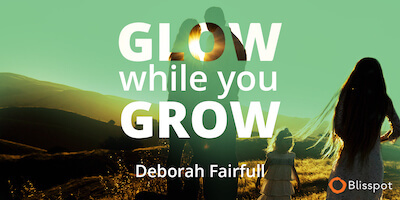Estimated reading time: 3 1/2 minutes
We know children need our love and it can be challenging to get the balance right if we have other things that we love or need to do, such as our career. It can be difficult for parents to find the right balance between raising happy, healthy children and engaging in a career. I have always loved my career, but as three adorable children entered my life, mother guilt that I was doing everything, but nothing well, has plagued me in the past. I have tried all sorts of different combinations: periods of time being a stay at home mum, working part-time, employing nannies, daycares, and after-school care. I have also been very lucky to have had the support of my mother and sister at various times.
With my first baby, I worked from home part-time—while my daughter slept for four hours during the day—giving me plenty of time to do my work. From the age of one, she had a nanny, while I worked from home with my husband, so we were lucky enough to see a lot of each other.
For the first year of my son’s life, I owned a business close by and would go home every four hours to feed him. Needless to say, I felt like I was rushing everywhere and I feel my son felt the pressure of that. My third child came with me to work from the time she was a baby. She was the youngest of the three to go to daycare, at one year old.

When our children are young, generally they want to be with us as much as possible. There are all sorts of studies showing that we should be with our children consistently for the first three years of their lives (Growing Girls). However, I feel that there are ways we can balance things out so that everyone’s needs are met.
My husband said to me when our first baby was very young, “happy mum, happy baby,” and I feel there is a lot of wisdom in this. When our children are born, we may have a career we wish to continue or have financial commitments we need to support.
It is possible to engage in a career while supporting our child in forming a healthy attachment to us—which is essential for them to feel safe and secure in the world. Our baby’s attachment to us forms a basis, or a benchmark, by which they will unconsciously measure all their other relationships. For example, if a daughter has a difficult relationship with her father and she had to work hard to please him, she is likely to attract a male partner later in life who is also difficult to please. Conversely, if a son has a healthy, functional attachment to his mother, he is more likely to attract a female partner that he can relate to in a happy, functional way.
If we cannot physically be with our child during their early years, as was sometimes the case for me, it is essential that we find the best possible care for our child. It is ideal that our vulnerable, defenceless child is cared for by someone who is as caring, kind, and as conscious as possible. Carers have a big impact on children, as it is they who assist in our child’s development and their introduction to the world.
Children learn more by what we do than what we say. The action does speak louder than words. If we can model to them that we can have a career that we love while ensuring that we spend as much quality time with them as possible, balance can be attained. Children often learn a lot about the world through our work, hobbies, and interests. So go forward, as guilt-free as possible, enjoying your career, knowing that if your child is in good care, that they will grow up happy and fulfilled.
To discover more about parenting and children, click here.








